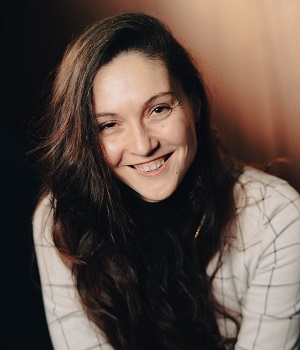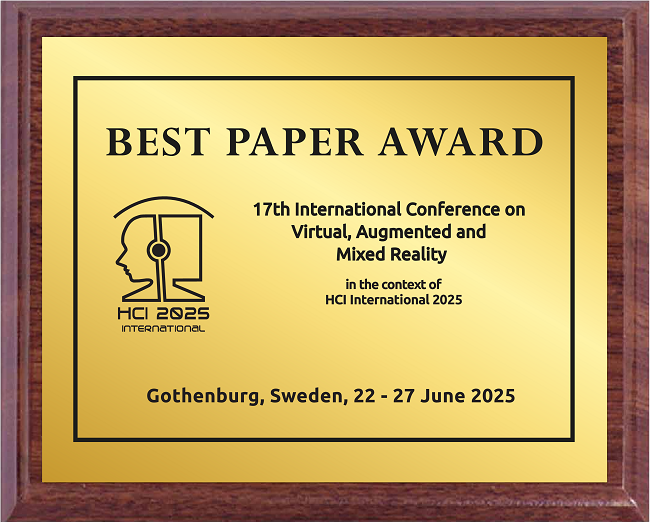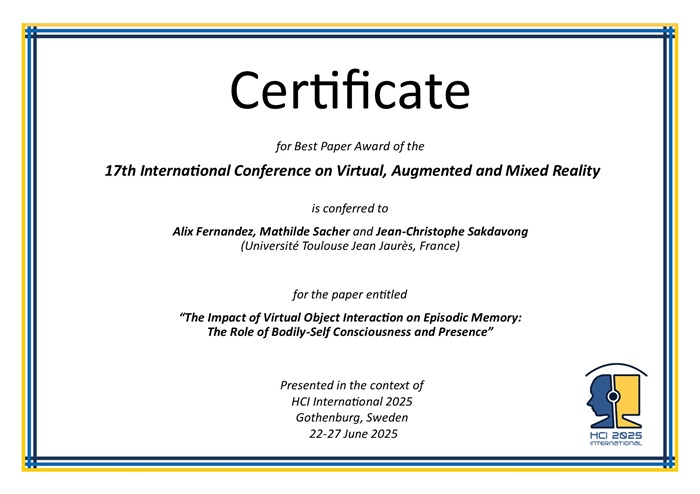The Best Paper Award of the 17th International Conference on Virtual, Augmented and Mixed Reality
has been conferred to
Alix Fernandez, Mathilde Sacher and Jean-Christophe Sakdavong
(Université Toulouse Jean Jaurès, France)
for the paper entitled
"The Impact of Virtual Object Interaction on Episodic Memory: The Role of Bodily-Self Consciousness and Presence"

Alix Fernandez
(presenter)

Best Paper Award for the 17th International Conference on Virtual, Augmented and Mixed Reality , in the context of HCI International 2025, Gothenburg, Sweden, 22 - 27 June 2025

Certificate for Best Paper Award of the 17th International Conference on Virtual, Augmented and Mixed Reality presented in the context of HCI International 2025, Gothenburg, Sweden, 22 - 27 June 2025
Paper Abstract
Episodic memory, key to reliving specific events [1], is often measured through standardized tests that do not always capture its nuances. Virtual reality (VR), with its immersive environment, offers a new approach to exploring this memory. This study examines the impact of interaction with virtual objects, Bodily-Self Consciousness (BSC), and the sense of presence on episodic memory in VR. Thirty-two participants were immersed in a virtual environment where they could manipulate certain objects. After the experience, they completed questionnaires about their BSC and sense of presence. Twenty-four hours later, a free recall task was used to assess their episodic memory, focusing on the objects, their details, and their location. Participants also rated their confidence in their memories. The results show that interaction with virtual objects improves memory for the objects and their details, highlighting the importance of motor interaction. However, this interaction did not influence participants’ confidence in the location of the objects, suggesting that different types of information should be distinguished when evaluating memory. Although the effects of BSC and the sense of presence on memory were not observed, a link between BSC and presence was identified, showing that bodily awareness enhances the perception of presence in VR. These results suggest the need for further investigation into these relationships and the development of more precise assessment tools to better understand episodic memory in VR.
The full paper is available through SpringerLink, provided that you have proper access rights.


